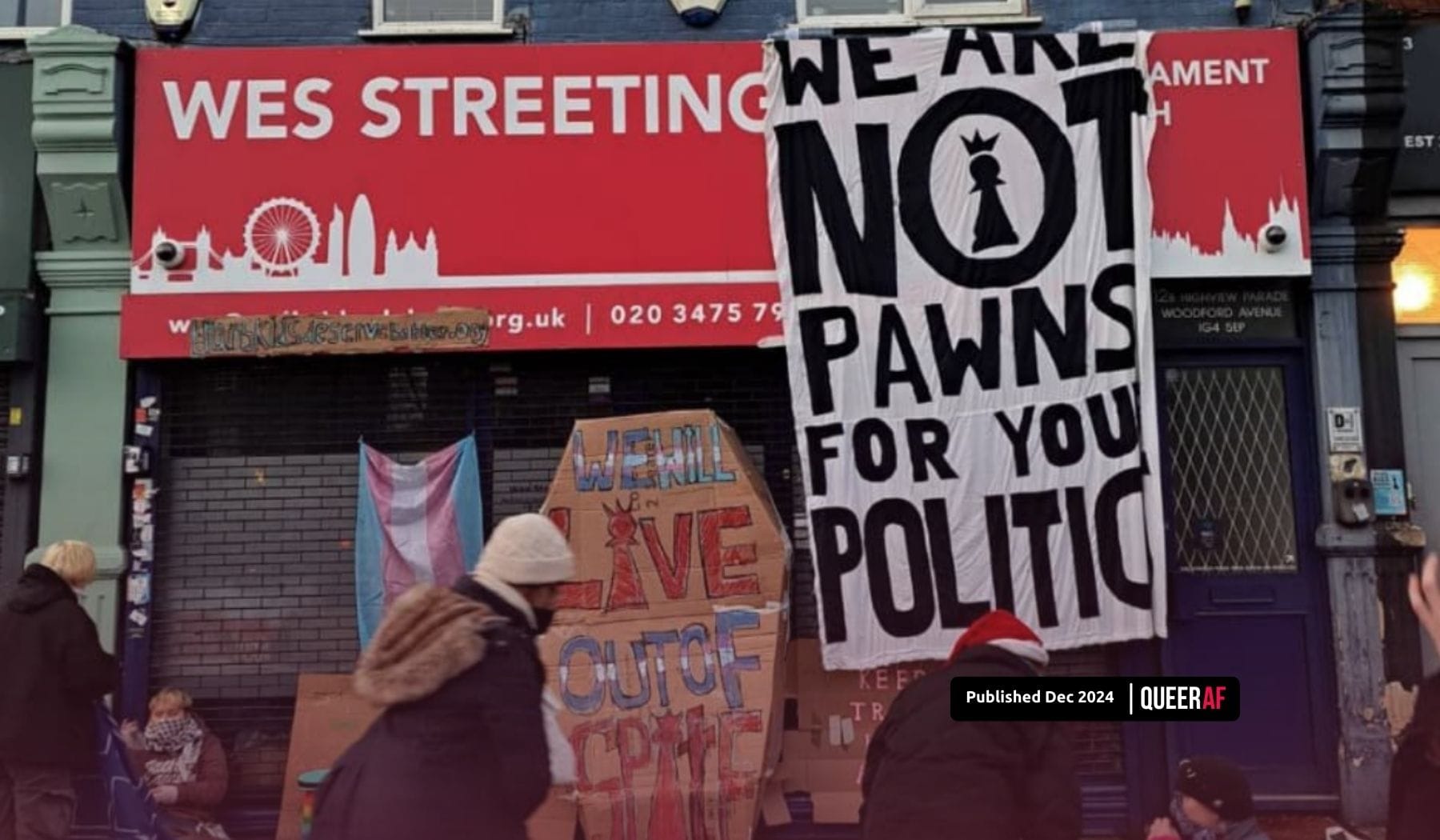TL;DR: Health Secretary Wes Streeting has made a temporary ban on puberty blocker use for trans children permanent. It's been decried as an ideological move by activists, who say that if it was about safety and science as Streeting claimed, their use for cisgender children would also now be banned. Analysis of the targeted consultation about the ban shows anti-trans groups were heavily featured.
Eight explicitly anti-transgender groups were featured in the targeted consultation that this week saw Wes Streeting, the UK Health Secretary, announce an indefinite ban on the use of puberty blockers for young trans people.
Groups, including Sex Matters, the LGB Alliance and the Bayswater Support Group of parents who advocate abusing trans children, were all invited to contribute to the consultation - Eva Echo
The consultation went to 51 stakeholders, including a mix of charities, academics and clinicians. Of those, 59% opposed making the order permanent - but Streeting sided with the 27% who supported it - GOV.UK
This week’s announcement means an existing ban, which has been renewed several times since the Conservative Health Secretary Victoria Atkins brought it forward in the final hours before parliament was dissolved, will be in place until at least 2027.
Puberty blockers for young transgender children will now only be available through an as-yet-unannounced clinical trial, which has hit problems before it's even begun as questions are being asked about its ethics - BBC
The ban extends to private providers too, and some parents have already been warned that they may face safeguarding referrals if they don't comply - QueerAF
The news also follows the ban being made permanent in Northern Ireland too - BBC
What do we know about the Puberty Blocker Ban consultation?
Responses to the government’s consultation set out in extensive detail the likely negative impact on young, vulnerable trans youth of making this ban permanent.
Respondents made clear the potential negative impact on mental health, the risk of bullying increasing and the increase of misinformation surrounding puberty blockers.
In contrast, the only positive outcomes highlighted by the consultation were for the medical sector, not for young trans people.
These were mentioned by a minority of respondents, who said the emergency ban has provided clear regulations, claiming it had "mitigated unsafe prescribing to children and young people".
Gender-affirming care has been shown in a number of studies - notably those questionably excluded from the Cass Review - to lower the risk of suicidal ideation, suicide and self-harm. For want of a better phrase, this care ‘saves lives’ - Columbia University
Puberty blockers pause the physical changes of puberty such as breast development or facial hair growth. The effects have been shown to be reversible. They have been used for decades in cisgender kids who either are going through puberty too early or too quickly. This use will continue to be allowed under the new rules - QueerAF
Analysis: Puberty blocker ban has nothing to do with science or safety
The NHS has a history of insisting on doing its own studies, despite international evidence of the efficacy, safety and improvement to people's lives brought about by LGBTQIA+ healthcare.
PrEP, which prevents people from getting HIV, is a perfect example. The NHS only approved its use after concluding its own trial, which was fraught with problems, despite evidence tracking back nearly twenty years showing the drug worked - QueerAF
Then there’s the Cass Review, which was used to justify the emergency ban in the first place. It's become the basis for practically all UK policy-making on transgender health, but was infiltrated by anti-trans groups, and deemed all evidence that supported the use of gender-affirming care was 'too low quality' to include.
Put this alongside the evidence that puberty blockers are safe enough to treat cisgender children with, and it becomes clear a different motive is behind this decision.
Young trans people who will be hit hardest by this move. That’s why, in the hours after the move was announced, activist group Trans Kids Deserve Better upped their action against the Health Secretary.
For over 80 days they’d been delivering cardboard coffins to his office; this week they occupied the pavement outside his office in the bitter cold. They said the action was “about being together - rather than alone despairing our own futures”, with one activist adding “I really strongly believe that the majority of the people in this country want us to live and lead happy and healthy lives” - Huck
It’s all too clear: the systems that are supposed to look after vulnerable children are failing transgender kids.

Broken systems can be fixed.
When we focus on individuals and bad apples we miss a great trick. We fixate on an issue as if it's isolated; we enable those in power to say they've addressed it by blaming the individual. To tuck it away.
But when we look at how to change systems, we can prevent bad apples and change things for everyone.
As you'll read this week, the media - including the gay media - has significant and troubling problems.
That's why we spend so much of our time, working to fix it - it's literally why we started QueerAF.
It's why were working with editors in mainstream titles, supporting media industry groups to improve their activity and training a new generation of queer journalists every week.
Going into 2025, we've got a stronger resolve than ever to keep this work up for you and the whole community. But imagine how much more we could do with just a few more members?











